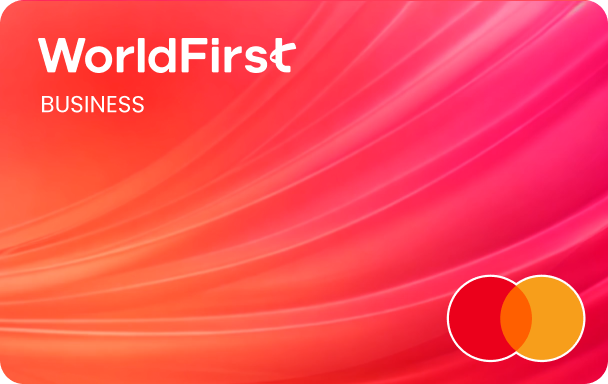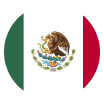Home > blog > Global Business Tips > How to Make Secure Cross-Border Payments in Malaysia: What Every Business Must Know
In a world where money moves across borders in seconds, the question isn’t whether you can send money internationally — it’s whether you can do it securely.
As Malaysian businesses expand overseas and digital adoption rises, ensuring every cross-border payment and international money transfer is safe has become critical. The rapid growth of global payments, digital wallets, and real-time platforms like DuitNow has also attracted cybercriminals who target businesses with increasingly sophisticated scams.
Why Secure Global Payments Matter
Malaysia continues to face rising financial crime challenges, with scams and online fraud costing billions. Cybercriminals exploit digital channels to attack businesses through:
- Mule accounts used to launder funds
- Phishing attacks targeting login credentials and financial information
- Fake supplier accounts and invoice scams
- Social engineering and identity theft
As cybersecurity in Malaysia tightens under Bank Negara’s guidelines and anti-fraud initiatives, secure payment practices are no longer optional — they’re essential for business survival and trust.
PCI DSS: Your Foundation for Secure Payments
If your business processes card payments, compliance with PCI DSS (Payment Card Industry Data Security Standards) is mandatory.
PCI DSS v4.0 includes:
- Stronger encryption and data protection
- Enhanced access controls
- Continuous monitoring and threat detection
Failing to comply can expose your business to fraud, penalties, and reputational damage — especially when dealing with global payments and overseas partners.
How to Make Secure International Transfers
Before sending funds overseas, follow this checklist to protect your business:
✅ Verify Recipient Details
Double-check beneficiary information, SWIFT/BIC codes, and business credentials to avoid fraud or misdirected payments.
✅ Use a Trusted Payment Gateway in Malaysia
Work only with regulated providers that meet PCI DSS and local financial regulations. A secure payment gateway in Malaysia reduces risk and ensures compliant processing.
✅ Open a Multi-Currency Account
A multi-currency account lets you hold and transfer money in different currencies. This means no forced conversions or extra fees. It gives you more control, security, and savings.
✅ Enable Two-Factor Authentication
Always turn on two-factor authentication (2FA) for banking and payment platforms. This adds a critical layer of protection against unauthorised access.
✅ Use Internal Controls
Set approval workflows for high-value international money transfers so no single person can release funds without review.
✅ Train Your Team
Regularly educate staff on fraud and cybersecurity risks — especially detecting phishing attacks and fake payment instructions.
✅ Keep Systems Updated
Ensure finance and payment systems are patched and secure. Outdated software is a major entry point for hackers.
One account to manage global payments
Pay your suppliers around the world. Collect payments for free in 20+ currencies. Convert when it suits you. All in one place.
Regulations & Cybersecurity in Malaysia
Malaysia’s regulatory landscape is strengthening to curb scams and mule accounts. Bank Negara Malaysia has implemented tighter AML requirements, real-time fraud response measures, and monitoring systems across financial institutions.
Businesses must prepare for greater transparency, implement risk controls, and meet audit requirements — especially when they operate internationally.
Why Choose WorldFirst for Secure Global Payments
Scaling overseas requires confidence — and a trusted partner.
WorldFirst offers:
- Secure cross-border payment capabilities in 20+ currencies
- Regulated operations across 60+ financial licences globally
- PCI DSS-compliant infrastructure
- Bank-grade encryption and fraud monitoring
- 24/7 global payment security support
- Local assistance for Malaysian businesses expanding abroad
With WorldFirst, you can manage international transfers safely, efficiently, and at competitive FX rates.
Turn Payment Security Into a Competitive Advantage
Secure global payments are more than protection — they build trust, credibility, and confidence with partners and customers.
By adopting security, compliance, and fraud-prevention best practices, your business safeguards revenue, reputation, and growth potential.
Ready to send money abroad safely?
Explore how WorldFirst helps Malaysian businesses succeed globally — without compromising on security.
👉 Sign up free to get your multi-currency account and start making secure international payments.
FAQ
What is the most secure way to make cross-border payments in Malaysia?
Use licensed platforms that support PCI DSS, two-factor authentication, and fraud monitoring — and provide a secure multi-currency account for global transactions.
How do I protect my business from mule accounts and scams?
Verify account details, use regulated payment platforms, and monitor transactions closely. Staff training is key to stopping scams before they happen.
What security features should a payment gateway in Malaysia have?
PCI DSS compliance, encryption, two-factor authentication, fraud detection, and real-time monitoring.
Why is PCI DSS important?
PCI DSS protects cardholder data and prevents fraud. Non-compliance can lead to financial loss and reputational damage.
Why use a multi-currency account for international transfers?
It helps you reduce FX fees, avoid unnecessary conversions, hold multiple currencies securely, and manage overseas transactions efficiently.
Continue reading
Subscribe
The Weekly Dispatch
Get the latest news and event invites. Signup for our weekly update from the worlds of fashion, design, and tech.
Open a World Account for free
Get local currency accounts, fast payments and competitive FX – all in one place.
You might also like
Choose a product or service to find out more

Doing business with China

Global Business Tips

e-Commerce & Online Sellers

Foreign Currency Exchange

International Transactions

Doing business with China


















































